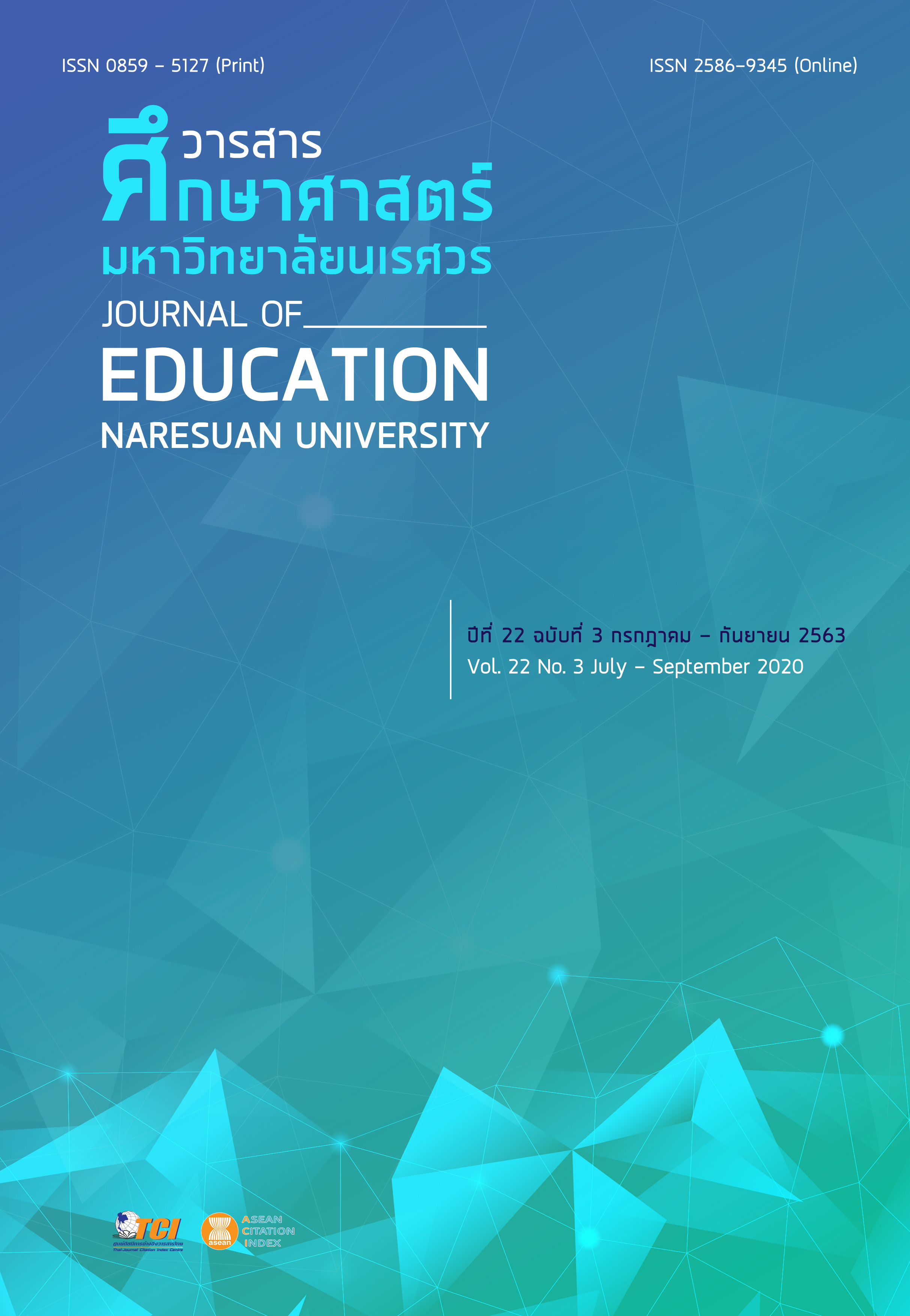PARTICIPATORY LEARNING MANAGEMENT TO PROMOTE THE HYGIENE AMONG EARLY CHILDHOOD LAHU CHILDREN การจัดการเรียนรู้แบบมีส่วนร่วมเพื่อส่งเสริมการปฏิบัติตนด้านสุขภาพอนามัยของเด็กปฐมวัยลาหู่
Main Article Content
Abstract
This research study was aimed to 1) study hygiene among early childhood Lahu children, 2) establish participatory learning management units in promoting early childhood Lahu children’s hygiene, and 3) study result of learning through participatory learning units on the area of hygiene among early childhood Lahu children. The target group used in this study divided into three groups, which were 1) knowledgeable people group, 2) participators group, and 3) relevant people group. Knowledgeable people group were religion leaders, village elderlies, village doctors, and village wisdoms. Participators group consisted of two groups, which were fourteen kindergarten 2 Lahu students at Bann Huay Kok Moo School, and fourteen parents or guardians. Relevant people group were medical doctors, nurses, public health promoters, and sub-district public health promoters. The instruments used in this study were 1) interview and researcher, 2) participatory learning management units in promoting children’s hygiene, and 3) children’s hygiene practice observation form. Data from hygiene practice observation form were analyzed by computing mean score and then presented descriptively with table. The results showed that:
1. Early childhood Lahu children’s hygiene practice was able to summarize that Lahu people have live-long custom and culture from generation to generation. Lahu’s way of life and society always believed about supernatural. Although it might fade away, but at present they still trust village doctors, who used cabbala and herbs, in the community. When the disease was not cured, they would go to the medical doctor. Lahu people still lived with natural trend and local wisdom.
2. In designing participatory learning management units in promoting early childhood Lahu children’s hygiene, there were five learning units that in each unit consisted of five learning plans with the total of 25 plans, which each plan consumed 50 minutes of teaching time. The five units were taught within five weeks and they were Food Hygiene, Rest Hygiene, Bowel Movement Hygiene, Cleaning Hygiene, and Disease and Accident Protection. All units taught specifically with the participation of teacher, students, community people, doctors, nurses, public health staffs, and staffs from sub-district hospital in their roles of giving experience to early childhood Lahu children. All learning units were able to use to arrange participatory learning in every part of relevant people in the community as the objectives.
3. Result of learning through participatory learning units on the area of hygiene among early childhood Lahu children showed in overall that Lahu children practiced on their hygiene at often level.
Article Details
The owner of the article does not copy or violate any of its copyright. If any copyright infringement occurs or prosecution, in any case, the Editorial Board is not involved in all the rights to the owner of the article to be performed.
References
Ban Huai Khok Mu School. (2011). Early childhood education standards for internal quality assurance. Chiang Mai: Banhuaikhokcmoo School. [in Thai]
Chansawang, P. (2013). Health and safety for young children. Retrieved July 9, 2014, from http://taamkru.com [in Thai]
Dejsawas, P. (2009). Participation for student’s guardian and community of the school management in Ban Sathan School, Phu Sang District, Phayao Province (Independent study). Chiang Rai: Chiang Rai Rajabhat University. [in Thai]
Lekyim, J. (2010). A study of the role of parents in promoting health for Kindergarteners in Sailom School (Master thesis). Bangkok: Chulalongkorn University. [in Thai]
Ministry of Education. (2010). National Education Act B.E. 2542 (1999) and Amendments (Second National Education Act B.E. 2545 (2002). Bangkok: Organizational Printing Shipping and Packing (ECD). [in Thai]
Promrit, W. (2007). Parental participation of students for Pratomsuksa in health promoting school operation Phrom Khiri District, Nakhon Si Thammarat Province (Master thesis). Nonthaburi: Sukhothai Thammathirat Open University. [in Thai]
Sengsri, T. (2013). Participatory development of activity project sets for undergraduate teacher students in education program. Journal of Education Naresuan University, 15(4), 129-141. [in Thai]
Singthon, L., & et al. (2005). A study of Lahu-na's life style of the local curriculum for teaching and learning in Bang Khob Dong School, Chiang Mai Province. Chiang Mai: Bang Khob Dong School. [in Thai]
Sunthonsanthun, S. (2009). Cooperative model of house, temple, school, and community for children and youth in Bangkok Metropolitan Area (Doctor dissertation). Maha Sarakrm: Mahasarakrm University. [in Thai]
Tansiri, W. (1999). Description of the National Education Act B.E. 1999. Bangkok: Saithan. [in Thai]


